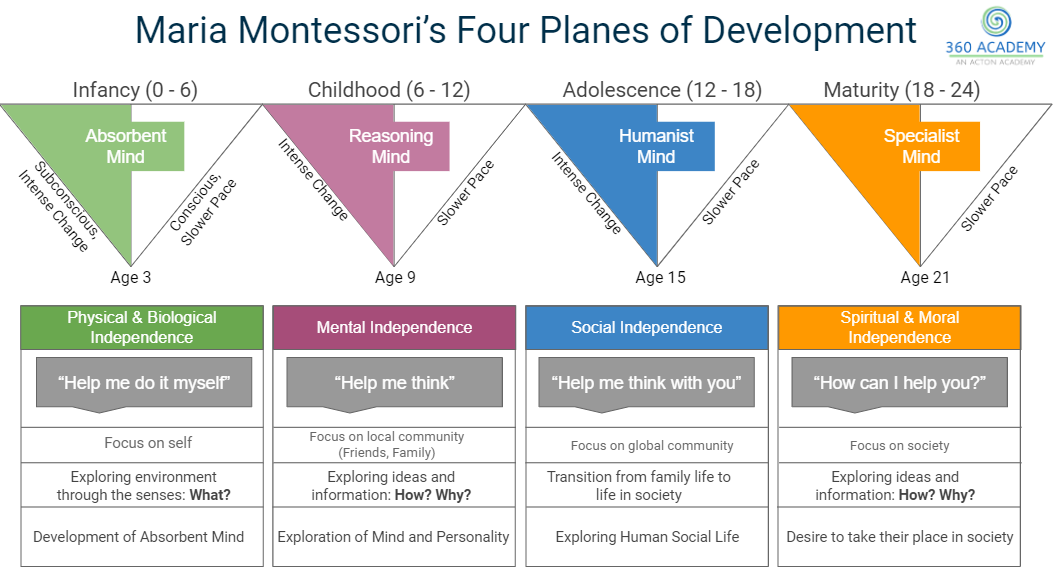Montessori's 1st Stage of Development: Infancy
In my exploration of childhood education, I have spent a lot of time reading about Maria Montessori and books by Maria Montessori. My latest endeavor was to dive deep into her stages of human development. In her observations, she detailed the skills and activities children are drawn to in each stage.
I have just completed reading her book The Absorbent Mind so I’ll take this post to detail out her view on the first stage of development.
Maria Montessori observed four “planes” of human development that she broke into distinct age groups.
Fist plane (Ages 0 - 6): Infancy / Early Childhood
Second plane (Ages 6 - 12): Childhood
Third plane (Ages 12 - 18): Adolescence
Fourth plane (Ages 18-24): Maturity
Montessori coined this infancy / early childhood period as the Absorbent Mind. During the first three years of this infancy phase, children are absorbing information “unconsciously.” They are watching, observing, intaking and absorbing what they gather from their senses. The second half of this stage, from the age of 3 to 6, children continue to absorb what they sense but in a conscious way. This requires more effort from them.
This is a period of great physical and biological independence and Montessori believed more learning happened at this stage than at any other. In Absorbent Mind, she states directly, “Education in the first two years of life is important to the whole life.”
Montessori believed it was during this stage that children had 11 different sensitivities. These sensitivities as described by the North American Montessori Center (NAMC) are:
Movement - Random movements become coordinated and controlled: grasping, touching, turning, balancing, crawling, and walking.
Language - Use of words to communicate: a progression from babble to words to phrases to sentences, with a continuously expanding vocabulary and comprehension.
Small Objects - A fixation on small objects and tiny details.
Order - Characterized by a desire for consistency and repetition and a passionate love for established routines. Children can become deeply disturbed by disorder. The environment must be carefully ordered with a place for everything and with carefully established ground rules.
Music - Spontaneous interest in and the development of pitch, rhythm, and melody.
Grace & Courtesy - Imitation of polite and considerate behavior leading to an internalization of these qualities into the personality.
Refinement of the Senses - Fascination with sensorial experiences (taste, sound, touch, weight, smell) resulting with children learning to observe and with making increasingly refined sensorial discriminations.
Writing - Fascination with the attempt to reproduce letters and numbers with pencil or pen and paper. Montessori discovered that writing precedes reading.
Reading - Spontaneous interest in the symbolic representations of the sounds of each letter and in the formation of words.
Spatial Relationships - Forming cognitive impressions about relationships in space, including the layout of familiar places. Children become more able to find their way around their neighborhoods, and they are increasingly able to work complex puzzles.
Mathematics - Formation of the concepts
Montessori’s first stage of development goes through the age of six. This is aligned with 360 Academy’s elementary student enrollment beginning when learners are 6-7 years of age.


